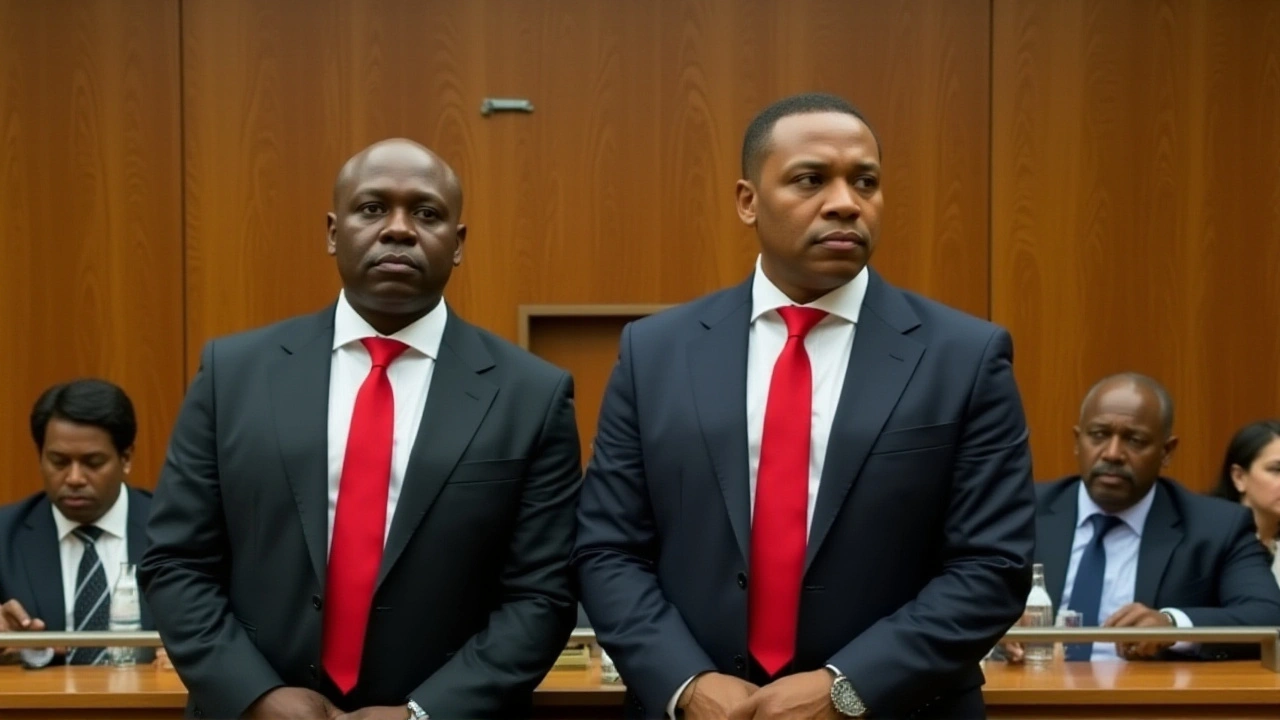Julius Malema, EFF leader, was convicted of reckless endangerment for firing a rifle at a 2018 rally, a ruling that could see him jailed and impact his political future.
South Africa’s Economic Freedom Fighters (EFF) keep the political scene buzzing. Whether you follow the party for its bold slogans or its parliamentary antics, there’s always something new to track. Below you’ll find the most useful info on the EFF’s core policies, recent actions, and how the public is reacting. No fluff—just the facts you need to stay in the loop.
The EFF rolls out four main ideas that shape its agenda. First, land reform: the party pushes for expropriation without compensation, saying it will fix historic injustices and boost food security. Second, nationalisation of key sectors like mining and banking, which they argue will keep wealth in South Africa instead of abroad. Third, a minimum wage of R25 per hour, aimed at lifting low‑income workers out of poverty. Finally, free education and health services, which they claim will level the playing field for black South Africans. Each proposal is framed as a step toward economic freedom, a phrase that appears in almost every EFF speech.
Julius Malema, the party’s flamboyant leader, often ties these policies to personal stories from townships. He says the policies aren’t just theory; they’re meant to solve day‑to‑day problems like unaffordable housing, unemployment, and corrupt policing. Critics argue the plans are financially risky, but supporters point to high youth unemployment and widening inequality as proof that bold moves are needed.
In the past month, the EFF has staged three major protests. One was outside the central bank, demanding a change in interest‑rate policy they claim hurts small businesses. Another took place at a mining conference, where EFF members shouted for immediate nationalisation of mineral assets. The third protest was a march in Johannesburg’s central business district, calling for the removal of a controversial statue that they say glorifies colonial oppression.
These actions have sparked mixed reactions. Young voters in townships often cheer the confrontational style, seeing it as a sign that the party is willing to fight for their rights. Middle‑class professionals, however, worry about economic stability and investor confidence. Polls this week show the EFF hovering around 12‑14% support, a slight rise from last year, indicating growing relevance without a breakthrough.
Parliament is another arena where the EFF makes noise. Recent debates on the National Budget saw EFF MPs asking pointed questions about spending on public transport and education. Their tactics—loud chants, dramatic gestures, and sharp one‑liners—can dominate airtime, forcing other parties to address their points. While some view this as disruption, many citizens appreciate the spotlight on issues that usually get ignored.
Social media amplifies the EFF’s reach. Their TikTok clips of rallies, Instagram posts of community visits, and Twitter threads dissecting policy proposals get thousands of likes and shares daily. This digital presence helps them connect with a younger audience that consumes news on phones rather than newspapers.
Looking ahead, the EFF is gearing up for the 2026 local elections. Their strategy includes fielding more female candidates, launching a road‑show across all provinces, and tightening grassroots fundraising. If they maintain momentum, they could become a kingmaker in coalition talks, especially in provinces where no single party gets a clear majority.
Bottom line: the Economic Freedom Fighters are far from a fringe group. Their mix of radical policy ideas, street‑level activism, and savvy online branding makes them a force to watch in South African politics. Stay tuned for updates on how their proposals develop, how the government reacts, and what it means for everyday South Africans.

Julius Malema, EFF leader, was convicted of reckless endangerment for firing a rifle at a 2018 rally, a ruling that could see him jailed and impact his political future.